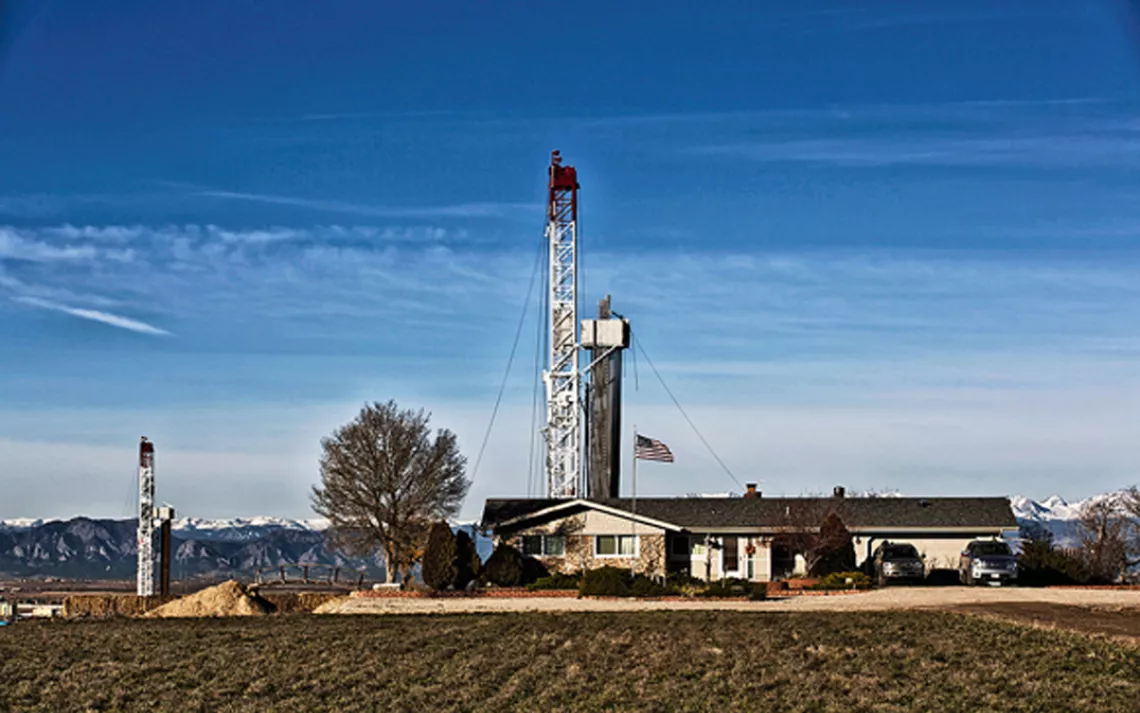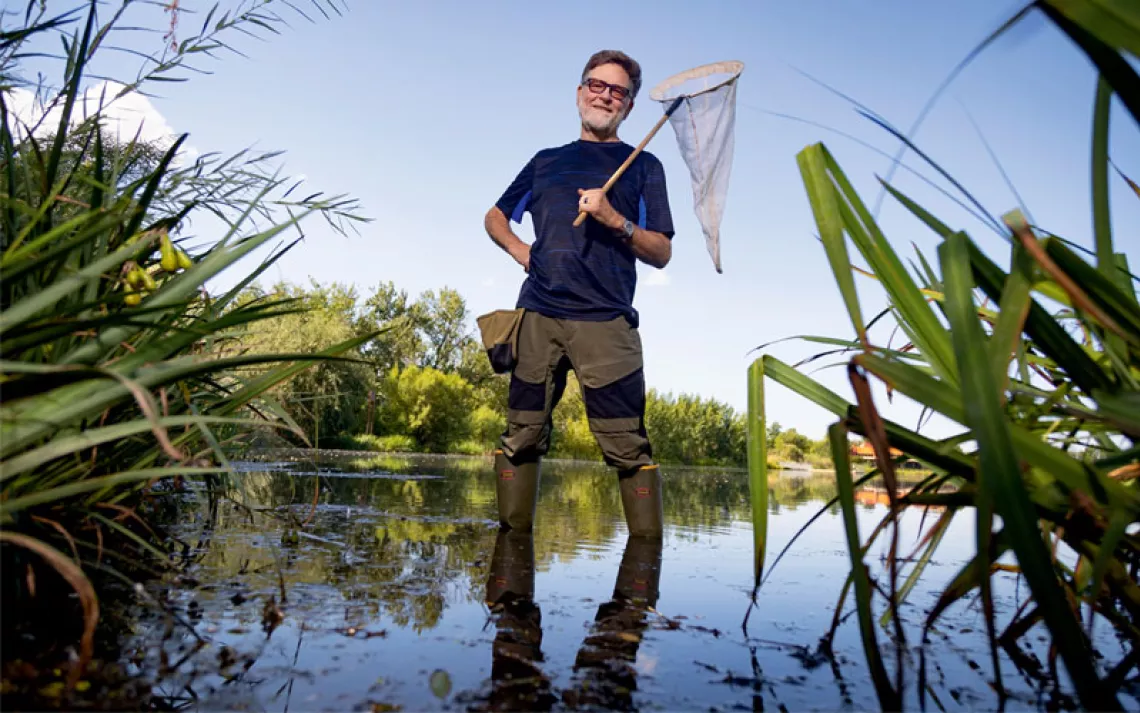Rocky Mountain High Five

Photo by Roger M. Richards
Fighting fracking is reminiscent of the early battles for clean air and water. Industry runs rampant and there are few rules, so where do you start? Answer: anywhere you can. In Colorado, anti-fracking activists recently pushed their state to become the first in the nation to regulate methane emissions from oil and gas operations.
The rules adopted by Colorado's Air Quality Control Commission in February require energy companies to install equipment at each well to capture 95 percent of the methane and smog-forming volatile organic compounds released. Methane, the main component of natural gas, is 30 times more potent a greenhouse gas than carbon dioxide.
The Sierra Club's Rocky Mountain Chapter delivered 7,000 comments to the commission and helped get more than 100 people to testify at public hearings. But the activists' success does not mean they're satisfied. The new regulations address individual wells but not total statewide emissions. "The industry is drilling so rapidly that soon we're going to have more methane than when we began," says Karen Dike, the Rocky Mountain Chapter's legislative committee chair. "But things would be twice as bad if these rules weren't in place."
Colorado activists are now working to support a "local control" initiative on the November ballot that would allow communities to decide whether they want drilling rigs at all. Four Colorado cities have passed fracking moratoriums, but they have a tenuous hold. (See "Fractured," January/February.) For example, the industry-friendly state is suing Longmont, whose voters approved a fracking ban in 2012.
On a broader level, Club activists are working to get strong federal fracking regulations enacted. After all, the Colorado chapter's Dike could just as well be speaking for activists in Pennsylvania or Texas when she says, "I don't want fracking unless it creates zero pollution."
 The Magazine of The Sierra Club
The Magazine of The Sierra Club







